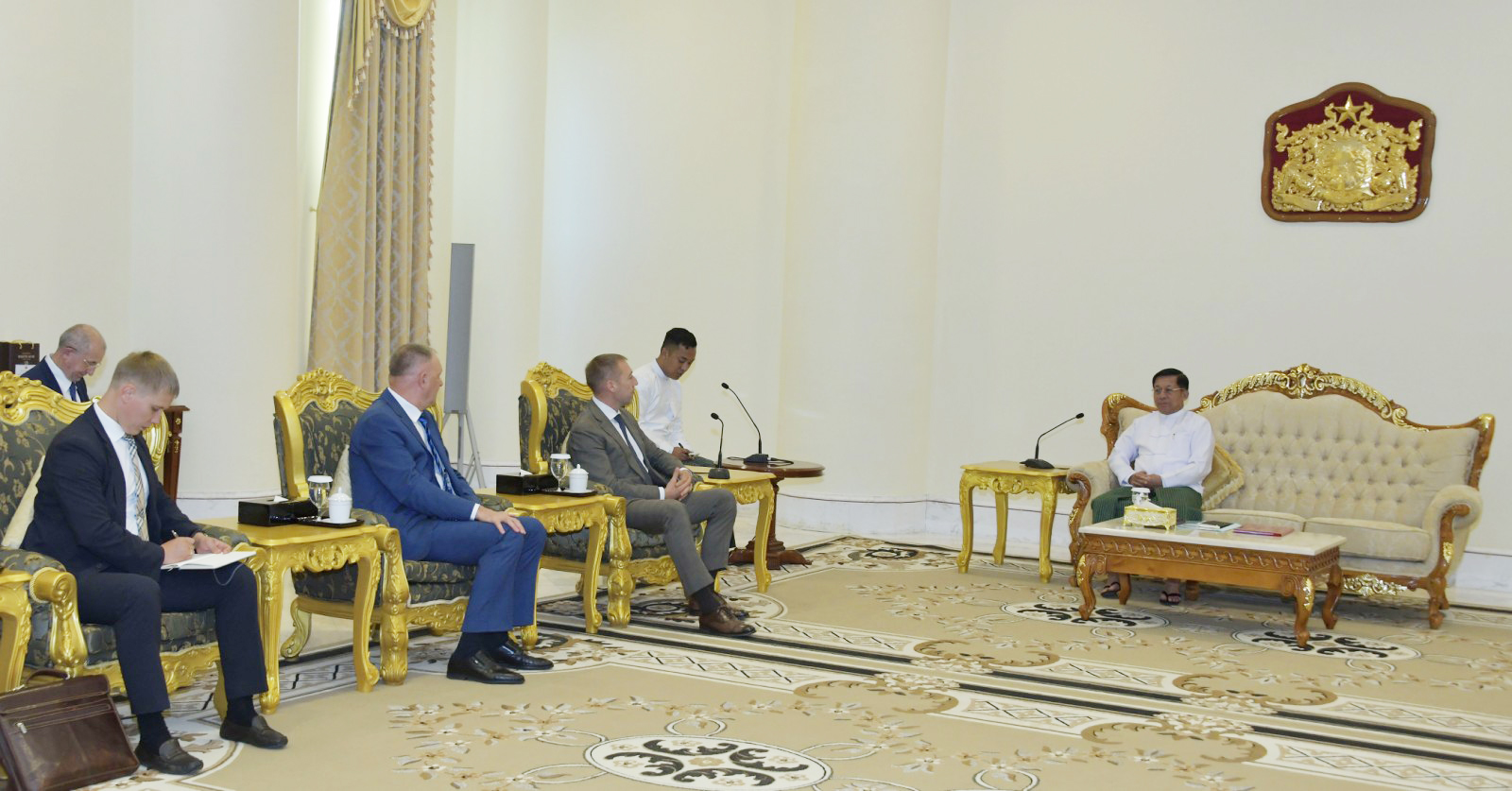Myanmar’s military regime and the Russian state-run atomic energy corporation (Rosatom) toasted their agreements for joint projects with an official dinner in Naypyitaw on Sunday.
In November, the regime’s Ministry of Electricity and Energy (MOEE) signed a memorandum of understanding with Rosatom for a feasibility study on building small modular nuclear reactors in Myanmar.
The same month, its Science and Technology Ministry clinched a deal with Rosatom to establish a nuclear center in Yangon.
The agreements came after the junta signed a “roadmap” for atomic energy cooperation with Russia’s nuclear power agency in September.
The Rosatom delegation arrived in Myanmar in early December to conduct a feasibility study for thermal power plants, making field trips to potential sites for wind power and small-scale hydropower projects. They are also helping the regime to establish a lithium battery factory to fulfill Min Aung Hlaing’s dream of manufacturing electric vehicles in Myanmar.
Ironically, the Russian delegation’s visit coincides with serious power outages across Myanmar, except in the administrative capital of Naypyitaw. Junta boss Min Aung Hlaing has been urging the people of Myanmar to save energy.
Russia’s assistance also followed its airstrikes on Ukraine power plants that left 1.5 million people in Ukraine without electricity.
The Russian delegation traveled to Naypyitaw, Yangon and Shan State’s Inle. Rosatom’s deputy director lgor Palamarchuk promised to assist development of the energy and technology sectors in Myanmar.
Meanwhile officials from Russia’s overseas trade organization, JSC Tyazhpromexport, met with Min Aung Hlaing in Naypyitaw to discuss Russian technical assistance for development of iron and steel production in Myanmar.

The talks followed Min Aung Hlaing’s October visit to the No. 2 Steel factory (Pinpet) in Shan State’s Taunggyi, a joint extraction-processing project of the military-owned Myanmar Economic Corporation (MEC) and Russian state-owned firm Tyazhpromexport.
The regime has been pushing for resumption of the project since June last year. The project, which began in 2004, was expected to produce 200,000 tonnes of pig iron and 720,000 tonnes of iron ore.
However, it was halted in March 2017 after being labeled “no longer commercially viable” under the now-ousted National League for Democracy government. Locals said the project also threatened the surrounding Pa-O community by damaging farmland and water sources.
Economic cooperation between Myanmar and Russia has come on in leaps and bounds since Russian President Vladimir Putin met with Min Aung Hlaing in Vladivostok on Sept. 7.
As well as officials from Rosatom and JSC Tyazhpromexport, Naypyitaw also hosted a Russian delegation led by Economic Development Minister Maxim Reshetnikov in the first week of December.

















